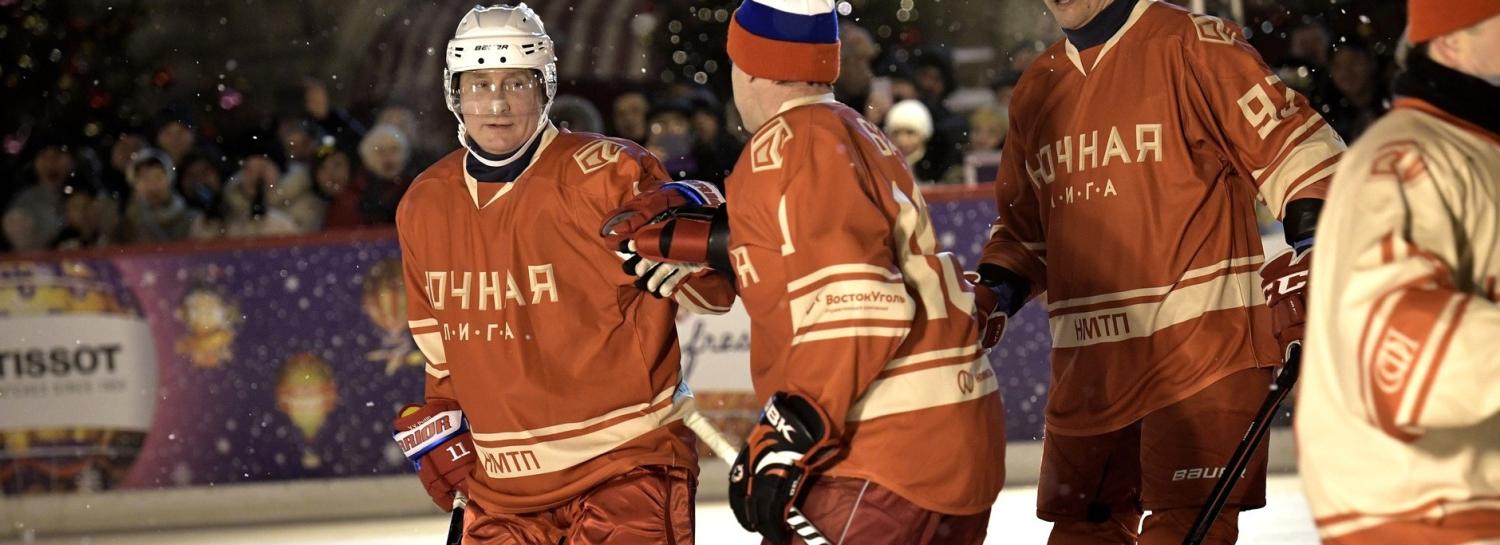Vladimir Putin’s election to a fourth term as President of Russia on 18 March is a foregone conclusion. Nobody can remotely consider Russia’s presidential election to be democratic, whatever Putin and his defenders might say.
Seeing as it is obviously a sham and a travesty, one might ask why bother to hold an election at all? This is because in Putin’s Russia, the outcome of an election is not nearly as important as the conditions under which it occurs. Russian elections are really ritualised forms of political participation directed towards creating the illusion of a sustaining and legitimating mass basis of support for the regime.
Thus Putin is very intent on not only winning 70% of the votes cast – since directives to regional bosses to arrange this figure were sent out long ago – but also on obtaining a turnout of more than 70% of eligible voters. By achieving this 70–70 formula, Putin and the regime can pretend to fulfil the electoral ritual and furnish it with the illusion of legitimacy.
No serious opposition will be allowed to run against Putin to make things remotely interesting. Indeed, on 28 January, as demonstrations across the country favouring a boycott to depress the total number of votes and strike at this 70–70 goal were beginning, the police arrested Putin’s main rival, Alexei Navalny. Having earlier fabricated a verdict of embezzlement against Navalny, Putin had already disbarred him by invoking a law preventing convicted felons from running.
Navalny is Putin’s fiercest and possibly most courageous opponent, and has bitterly criticised him and his minions for corruption for years, not without resonance in parts of Russia. While killing Navalny, as the regime has done with other challengers, would probably be too much, Putin has used the force of his “dictatorship of the law” (dictatorship by the law) to suppress his opponent’s message and candidacy. So the arrest was no surprise.
Putin’s other opponents are probably stage-managed candidates. This charge is frequently made about Russia’s former “it girl” Kseniya Sobchak, Communist millionaire (such is the Russian reality) Pavel Grudinin, and the long-discredited semi-official buffoon Vladimir Zhirinovsky. This election is hardly going to inspire high voter turnout.
The problem Putin now faces is how to generate enthusiasm, or at least the semblance of it, in a preordained ballot when the main challenger is deprived of a voice. This dilemma is particularly telling, given the numerous public opinion surveys attesting to widespread popular apathy, economic hardship, and frequent demonstrations against the regime.
Another phenomenon that should not come as a surprise is that it is young people who appear to be Navalny’s chief supporters in Russian cities. They have seen Russia’s future and know it doesn’t work for them.
Precisely because Putin cannot transform Russia’s economy without undermining his own position, and will therefore not implement needed reforms regardless of whatever he now promises, he has opted to play the role of exponent and embodiment of traditional masculine and Russian values. Such farcical stunts as having a 65-year-old Putin play ice hockey and do well against professionals, or be seen taking a public plunge into freezing waters as he carries out an Orthodox rite of Epiphany, are public relations gambits designed to reassure the older, less urban, less educated, and certainly less sophisticated sections of the electorate that their ruler not only remains a vigorous “real man” but also a representative of classic Russian and Christian values.
Similarly, Putin’s public rhetoric on foreign policy and nationality policies towards minorities have been exceptionally anti-Western and chauvinistic – both these approaches play well in Russia. Despite the aforementioned apathy, public opinion surveys show that 82% of respondents believe Russia should retain a great power role into the future, while 72% believe it is a contemporary great power. Given this popular mood, it makes obvious sense for Putin to cast himself as “national saviour”.
Of course, most of these public rituals and displays of manly prowess confirm Marx’s insight that when history repeats itself the first time it is tragedy, and the second time a farce. But that does not matter to Putin; the election campaign is a great show that must go on.
But if the turnout fails to reach 70%, or Putin somehow fails to reach a 70% majority, his authority and legitimacy will be cast in doubt. The failings of the system will have been demonstrated for all to see. If a domestic crisis arises in Russia, it will likely affect the West. It would probably be long, painful, and quite possibly violent, as the regime has no fallback other than invoking great power status, which necessarily entails conflict at home and abroad with all those who might challenge the invulnerability of the man behind the curtain.

